This International Women's Day 2023:
Embrace Equity for Women with Disabilities
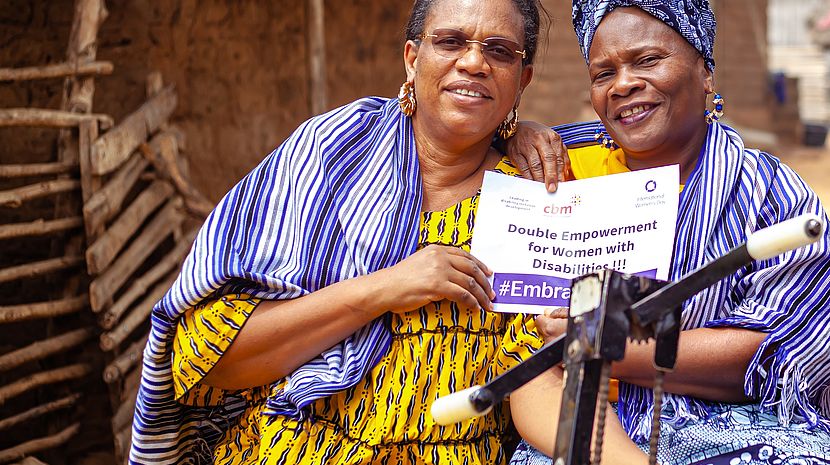
©CBM
By focusing on making our work equitable, CBM ensures that people are provided with the resources they need to meet their specific needs.
On International Women's Day (IWD), CBM highlights the plight of women with disabilities. They face discrimination and have less access to many areas of society, including education, health and economic opportunities. At this year's IWD 2023
The term "equity" refers to fairness and justice and is different from equality: While equality means providing the same to all, equity means recognising that we do not all have the same starting point and must acknowledge and redress imbalances.
"While progress has been made, women and girls with disabilities still face challenges big and small. We need to keep talking about these challenges. We need to remain aware of what needs to be done and not become complacent, because change will not happen on its own," says Friederike Loosen, the representative of employees with disabilities on the CBM staff council.
CBM demands that:
- Personally: support the development of leadership opportunities for women with disabilities.
- Politically: create a strong global voice for women with disabilities.
- Strategically: ensure that development policies and programmes are inclusive of women with disabilities.
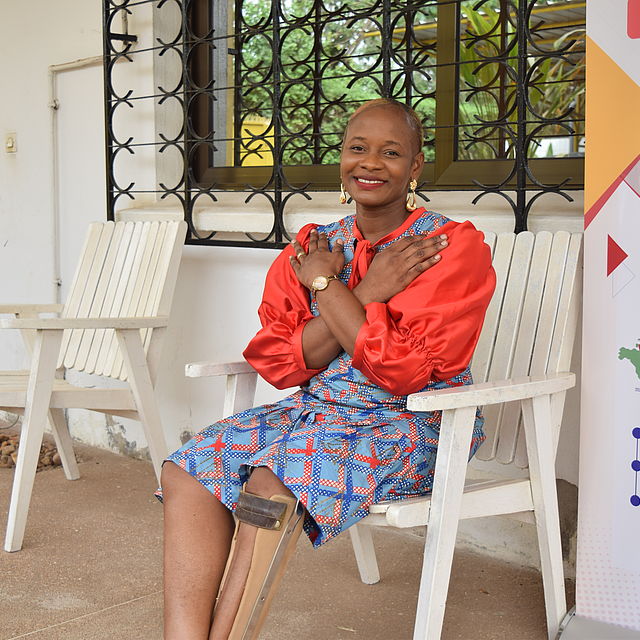
Embracing Equity at CBM
"On this International Women's Rights Day, I especially call for the inclusion of women with disabilities in our communities!
My name is Eboahun Amelevi, I am physically impaired on my left foot due to childhood polio. I am married and a mother. I have been working at CBM Christian Blind Mission as a finance officer since January 2016. I have my driving licence and can move around independently. I am fulfilled!
Because my family and friends were committed to my inclusion yesterday, despite my disability, this is a pillar of my self-confidence and enables me to fully enjoy my human rights today. I am grateful for God's grace in my life.
Today, in my position at CBM, I am proud to be involved in implementing projects that promote equity, and integrate and empower persons with disabilities.
All of us need help, but that does not make us vulnerable, it makes us human. I am proud to be part of this community of workers with disabilities. Therefore, I do not expect pity from others, but acceptance, understanding and conviviality, the joy of living in a community. I call on all persons with disabilities, especially women, to stand up and be actors of their own social and financial well-being and their autonomy at all levels."
When Women Succeed, Society Thrives
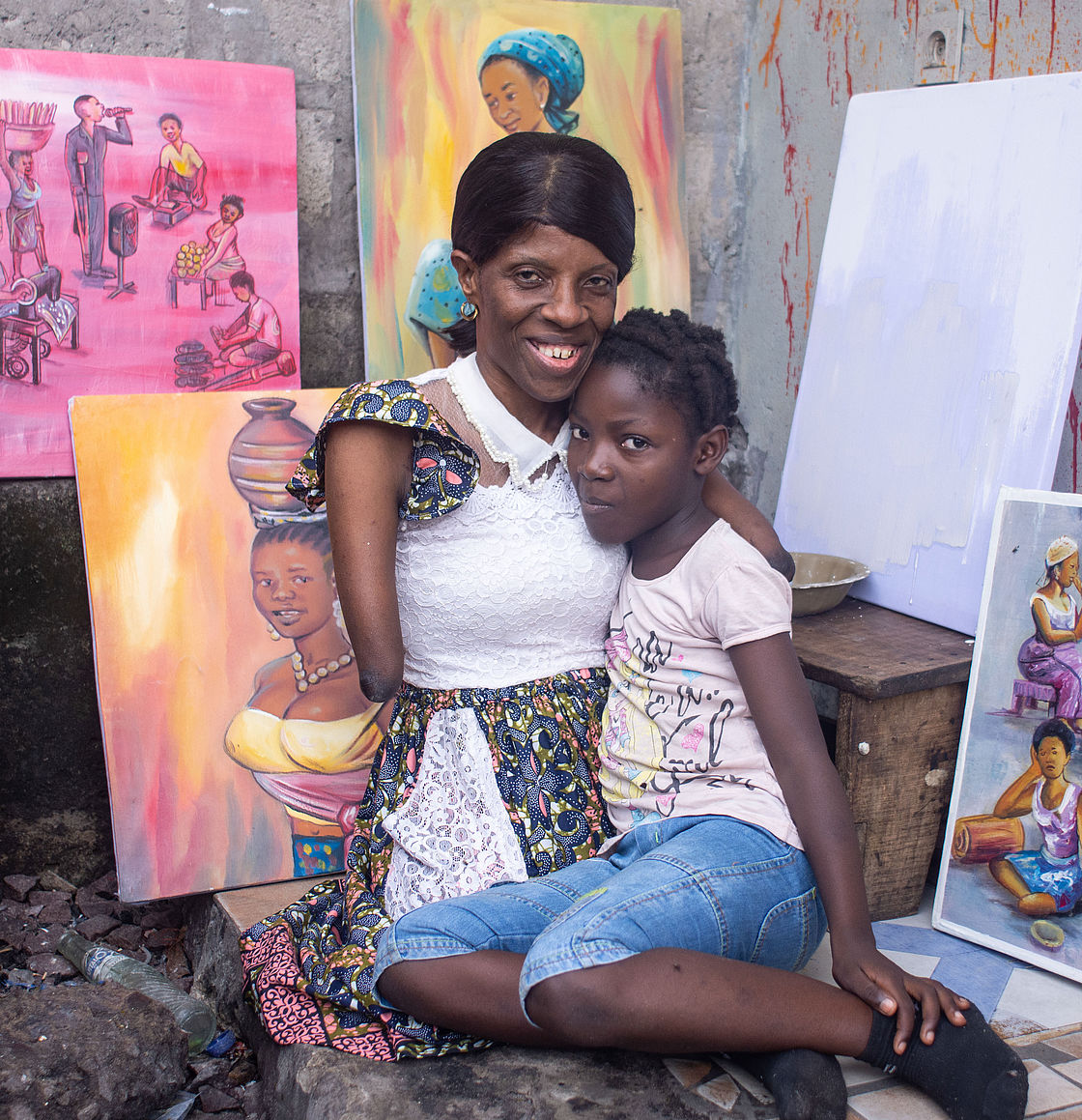
Stella and her daughter
©CBM/Shambuyi
CBM's work is inspired by women like Stella Mbe-Mbo a painter from DR Congo and Verena Bentele the president of Germany's largest social association, VdK.
Both women know only too well what it means to have equal opportunities that help you develop and achieve full independence.
CBM works with both women; Verena has been a CBM Ambassador since 2008, while Stella is a beneficiary who now participates as a mentor in a CBM project in Kinshasa. Our programmes not only include persons with disabilities but also recognise that people have different abilities. By focusing on making our work equitable, we ensure that people are provided with the resources they need to meet their specific needs.
46-year-old Stella is a painter - she has neither arms nor legs. The mother of five children learned art at a CBM-supported vocational centre for persons with disabilities. She also received a wheelchair and financial support to diversify her sources of income, because painting alone is not enough to meet the family's needs.
Now Stella trains other persons with disabilities in art painting in her home. She wants to help them become financially independent.
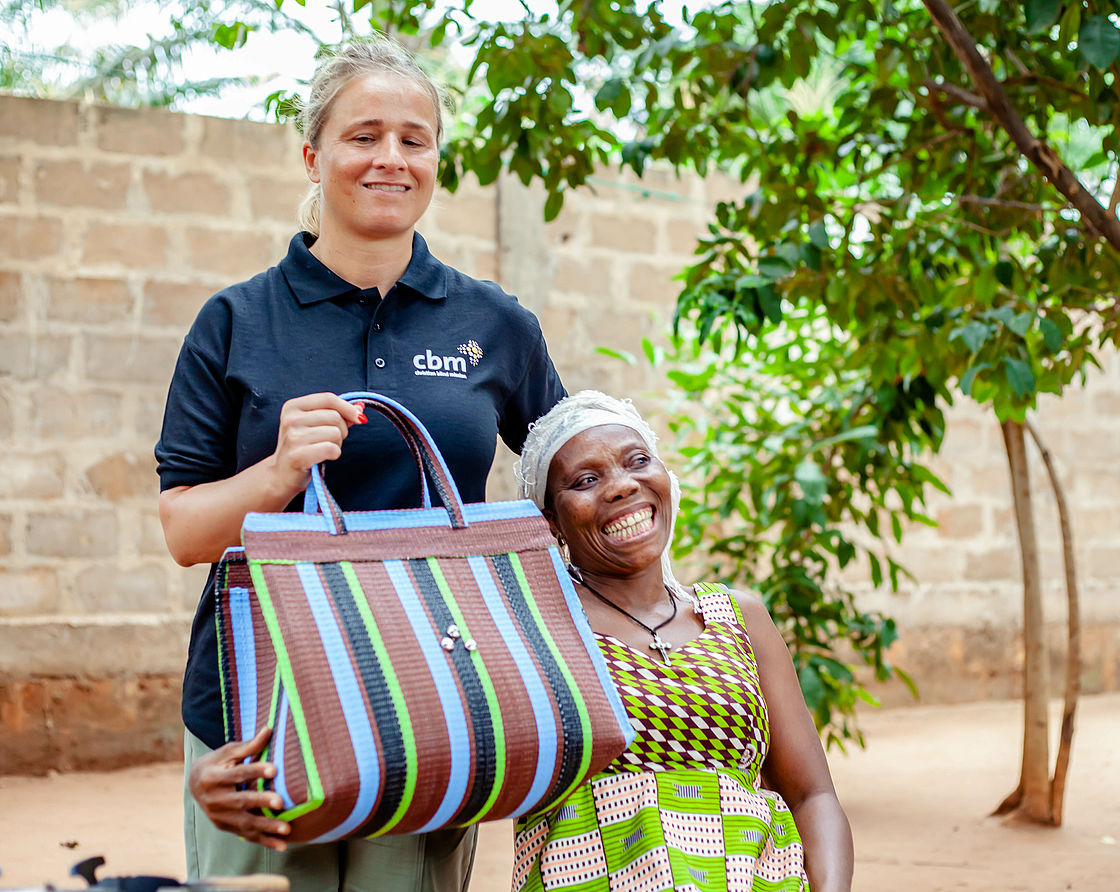
CBM ambassador Verena Bentele with Ablavi at Village Savings and Loan Association in Togo where women with disabilities are supported. Ablavi makes bags
©CBM/Happuc
Verena, who has been blind since birth, is a successful biathlete and cross-country skier. She has won 12 Olympic gold medals at the Paralympics alone and is a four-time world champion. Despite her successes in a society that offers opportunities to persons with disabilities, Verena is not blind to the discrimination faced by women with disabilities in developing countries such as Togo, where she has visited projects run by women with disabilities.
In her position as president of Germany's largest social association, VdK, Verena campaigns for social justice and reducing the gap between rich and poor. It is also important to her that no one is disadvantaged or excluded because of a disability.
According to the UN, two-thirds of women with disabilities live in low- and middle-income countries.
They are denied access to education, are three times more likely to be illiterate than men with disabilities and do not have equal participation in social activities or access to sexual and reproductive health and services.
Equity for all women, including women with disabilities, has a positive impact not only on the woman herself but also on her children, her family and her society. An empowered, educated and economically stable woman moves everyone around her forward.
These women with disabilities are making a difference in their communities.
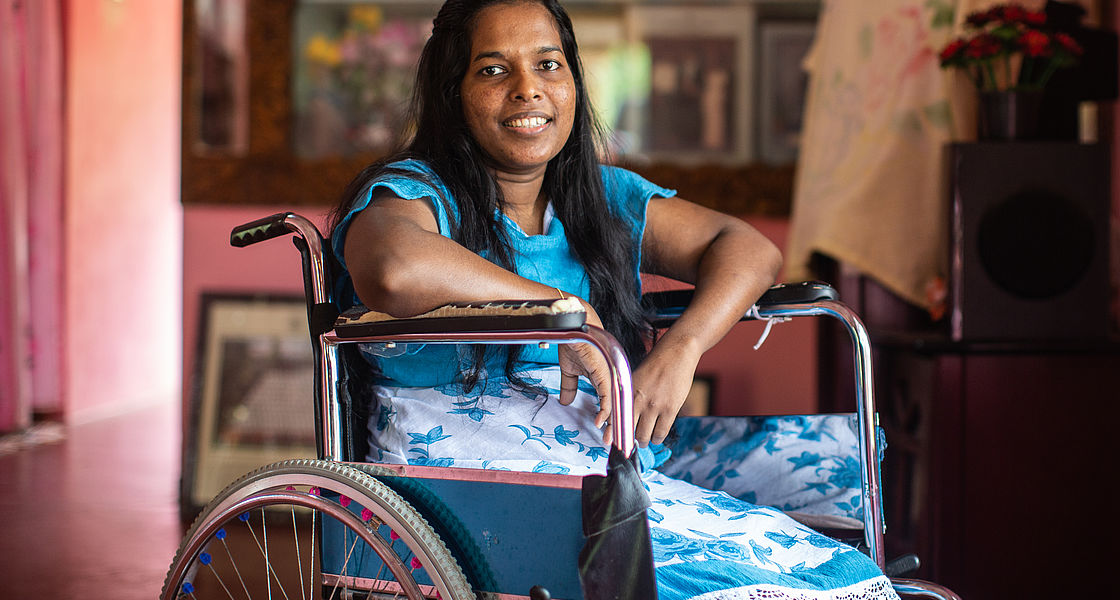
Nayana, from Sri Lanka, spent more than half her life in a wheelchair after an operation to remove a spinal tumour left her partially paralysed. Today, she is a teacher and an active advocate for the rights of persons with disabilities. Nayana has attended workshops on disability rights and is now one of the most active members of a local disability rights advocacy network set up with the help of the project.
©CBM/Sharni Jayawardena
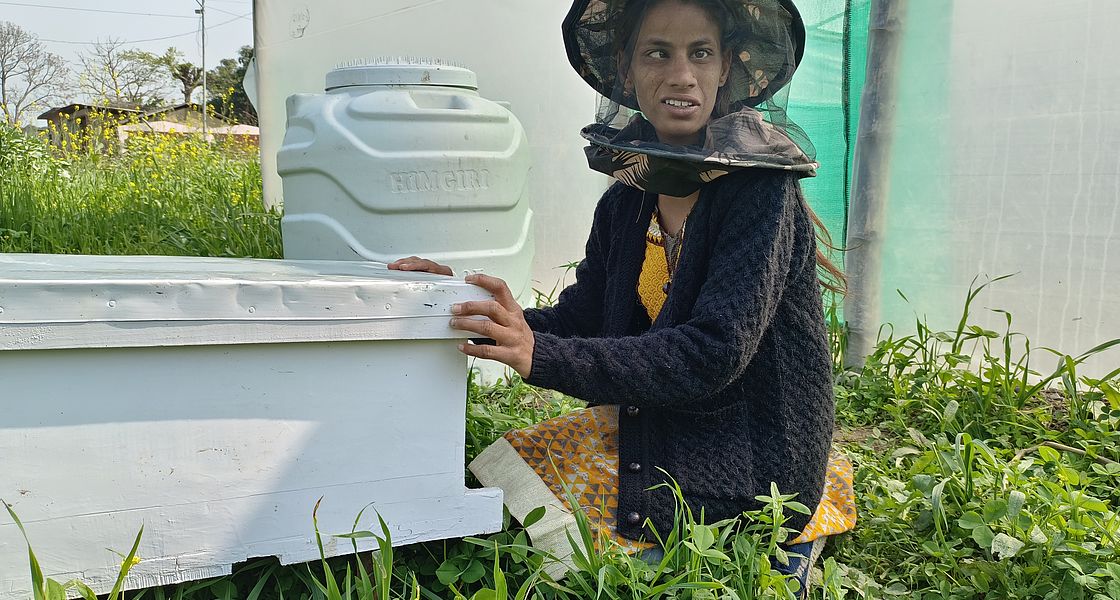
Sunanina from India is visually impaired. She is one of the seven trainees who participated in the beekeeping training organised by the Khadi and Village Industries Commission. After completing the training, Sunaina is now a master trainer under the Atmanirbhar Shamoodhay project.
©CBM/Sati
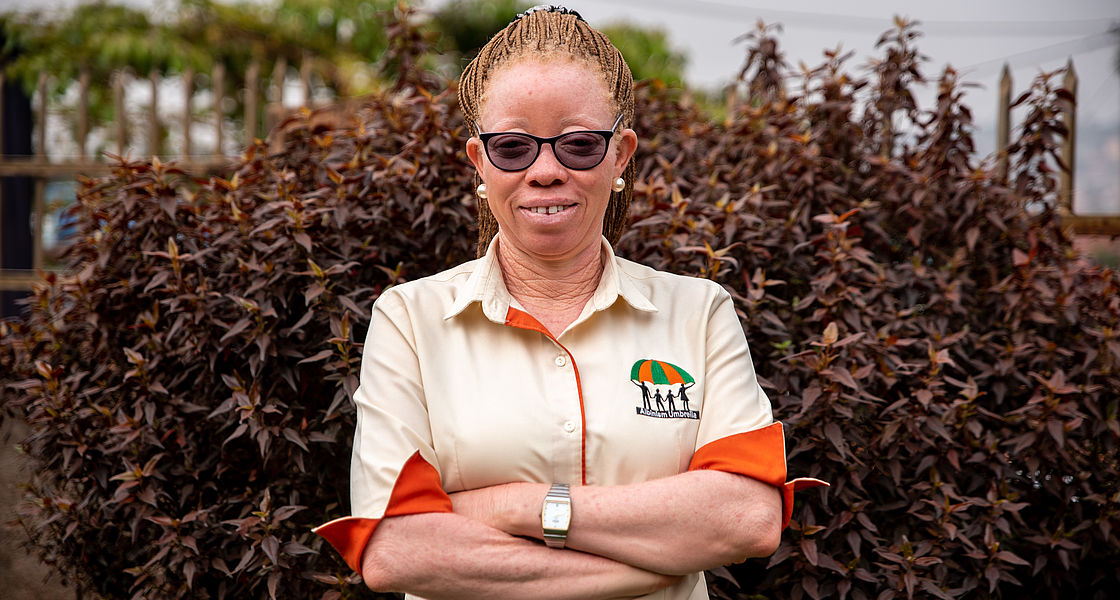
Olive is the head of Albinism Umbrella, an organisation that works to raise awareness, promote and protect the rights of persons with albinism in Uganda. A successful bank manager, Namutebi advises people to believe in themselves and constantly remind themselves of their self-worth. She encourages people to aim higher, find like-minded people and nurture good friendships.
©CBM
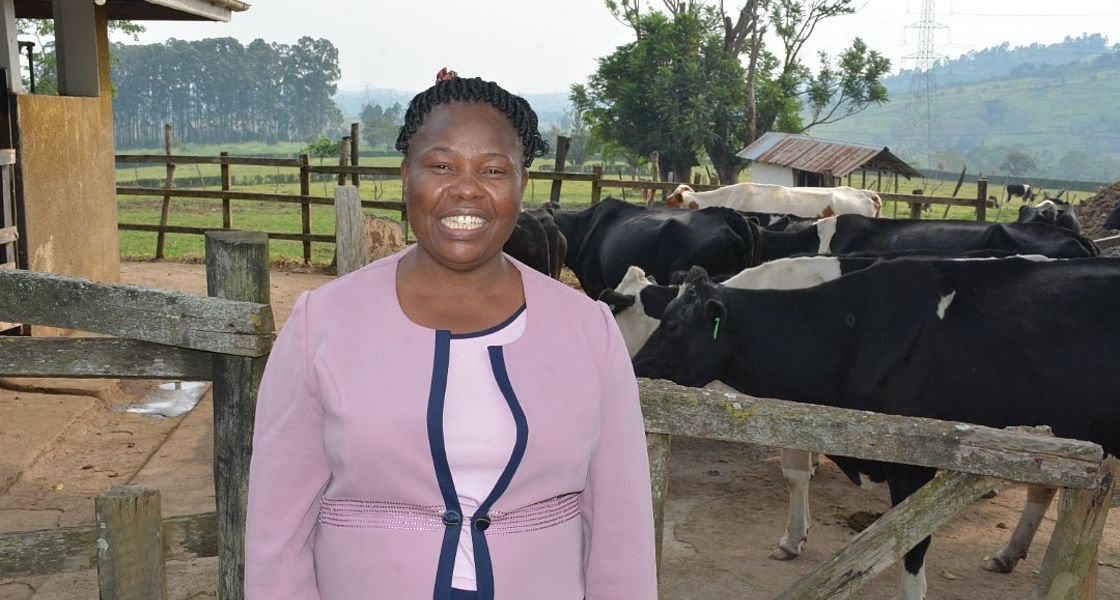
Dr Pamela Nizeyimana from Uganda led the development of a national inclusive education policy and worked on various projects to improve the education system in her country.
"Persistence is essential because advocacy for persons with disabilities is often a long-term process that requires a lot of time and effort to bring about change. It is important not to give up and to keep working towards achieving the goals of inclusive education and equal opportunities for people with disabilities."
©CBM
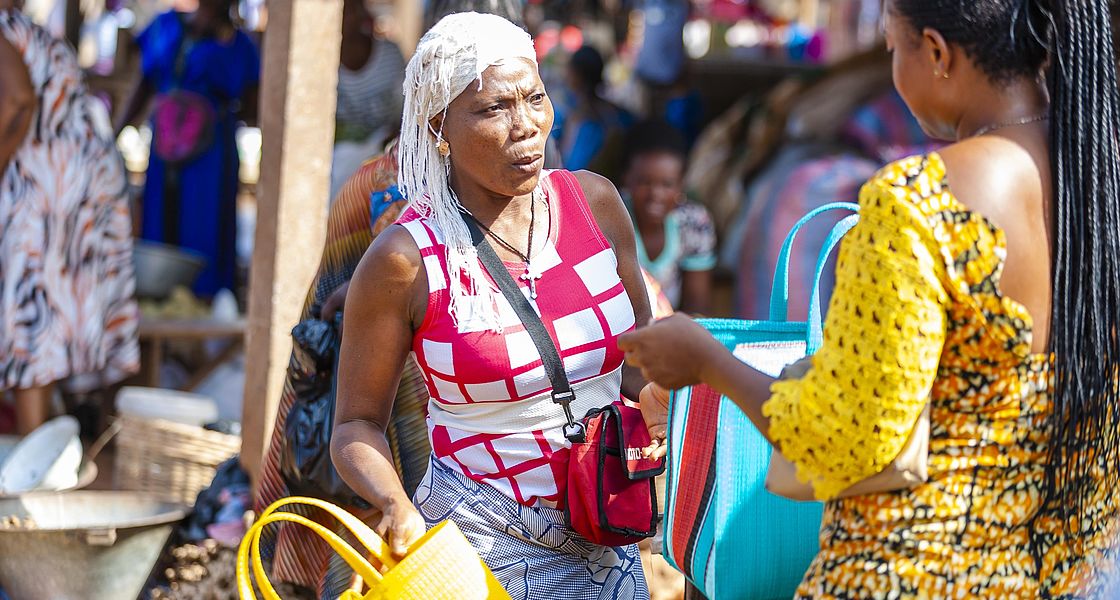
Ablavi is a member of the Village Savings and Loans Association in Togo. She received a loan to expand her business. Now she trains other women to make bags.
"Being a member of a VSLA allows me to be with other women with disabilities and support each other. Through the APROFEHTO project, I was able to train at least 78 women with disabilities or mothers of children with disabilities to make bags. With a loan, I was also able to expand my business. Diversifying activities has enabled me to make more profit to support my son."
©CBM/Happuc
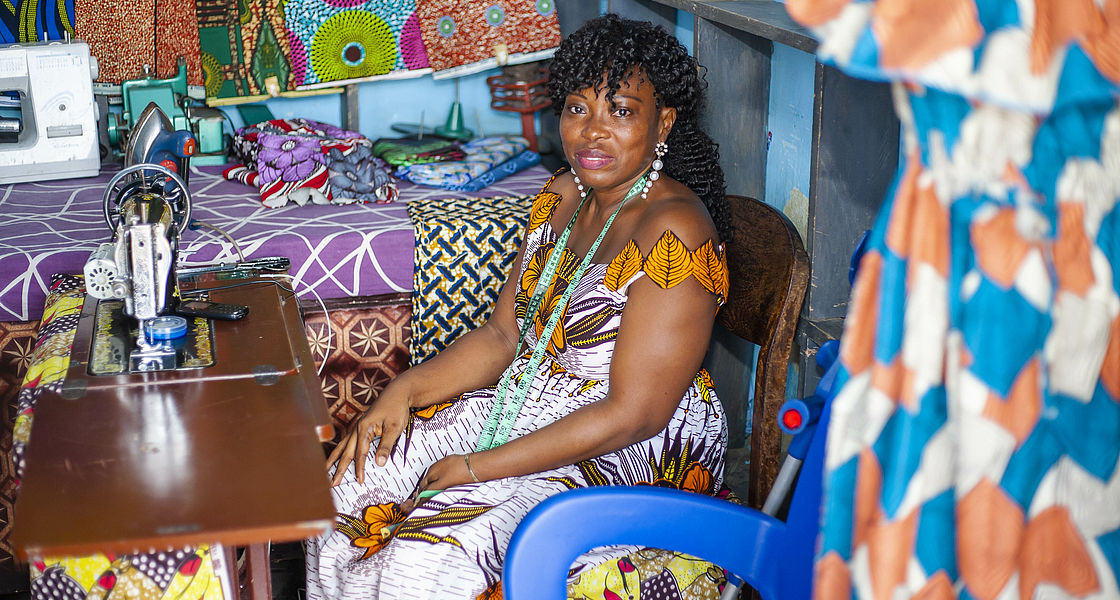
Edwige from Togo is a single mother and tailor who was trained in leadership, disability rights and entrepreneurship through the APROFEHTO project.
"For the first time, I learnt that I have the right to education and employment like any other person. I became confident in defending my rights. Today, people ask me how I achieved this level despite my disability. I use this opportunity to sensitise other women with disabilities and mothers of children with disabilities."
©CBM/Happuc